
No matter what your angle on mobile technologies is — mobile developer, a mobile IT pro, a mobile marketer, or participating in mobile ecommerce — you’re going to want to get a look at a slide deck titled Mobile is Eating the World. Yes, it’s another “state of the mobile industry” presentation saying that the future of mobile is massive, but it tells the story very well using mostly graphs, and it’s quite layperson-friendly. The presentation, put together by Enders Analysis consultant Benedict Evans, has gone unnoticed by the mobile tech world for almost a month because it wasn’t given at a tech event, but at BookExpo America, a book publishing industry conference.
I’ve taken the graphs from the slide deck and rearranged them a little; I think the story’s even stronger when the slides are in this order.
Step Aside, PC, Here Comes Mobile!
According to IDC, PC shipments are expected to drop by nearly 8% this year. They’re still selling, but the sales trend is no longer upwards, as the roles it once played exclusively are now being taken up by smartphones and tablets. A new version of Windows used to boost PC sales, but that’s no longer the case; a number of people in the industry say that it’s the upcoming end of extended support for Windows XP (this happens on April 8, 2014) rather than Windows 8 that will slow the decline:
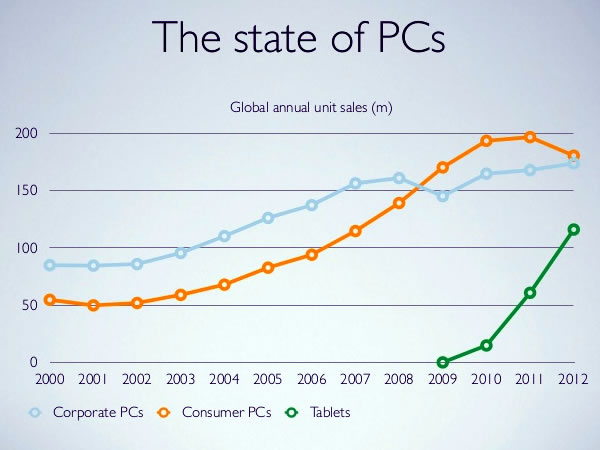
At the same time, sales of smartphones are booming. They’ve got much faster product cycles, and people tend to replace them every 2 or so years on average, rather than every 4 years with PCs:
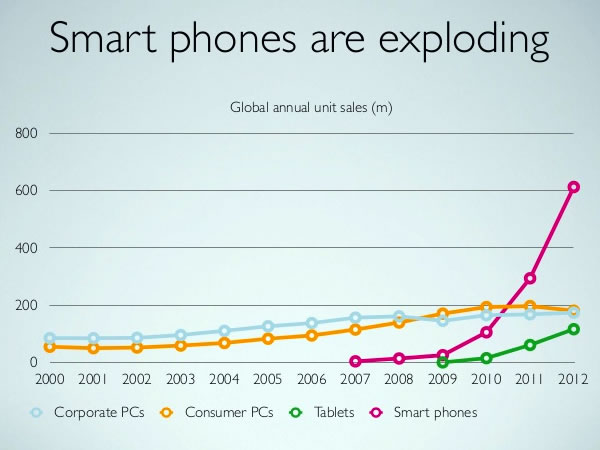
CCS Insight predicts that 1.86 billion phones will be shipped in 2013, and 53% of them will be smartphones. In fact, more smartphones than non-smartphones were shipped for the first time in the first quarter of 2013:
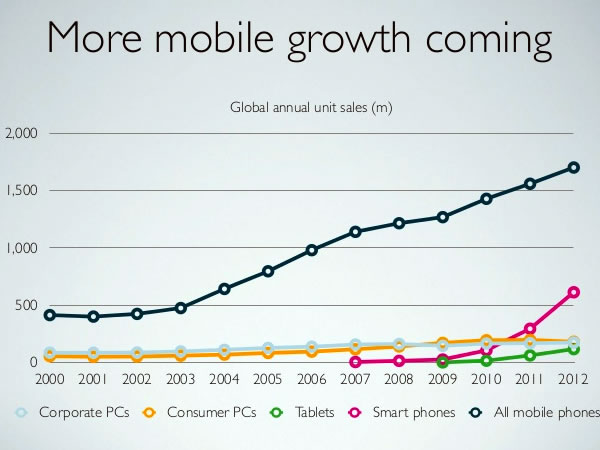
Tablets Taking Over
According to Evans’ charts, tablet sales surpassed desktop PC sales in late 2012 and are quite close to laptop sales today. It shouldn’t be surprising to find that 1 in 3 American adults owns a tablet:
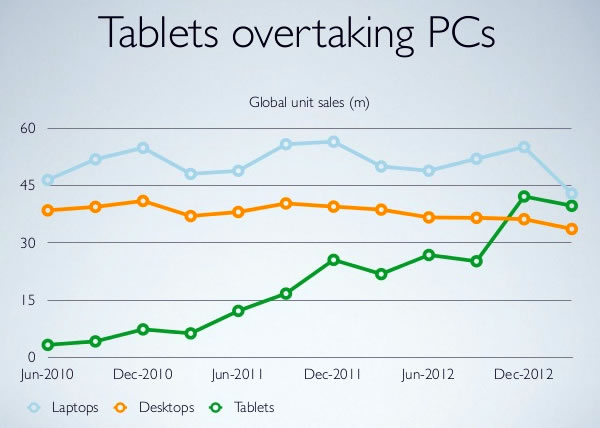
If you treat Android, Kindle Fire and Nexus tablets as individual platforms — and from a non-technical end user’s point of view, they are individual platforms — then the tablet market resembles the PC market in the mid-1980s, with a couple of big players and some smaller but significant ones:
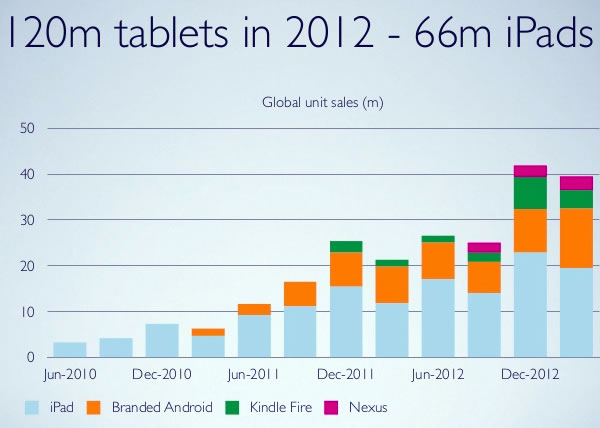
In G8 countries, the phrase “tablet market” might as well be synonymous with “iPad market”:
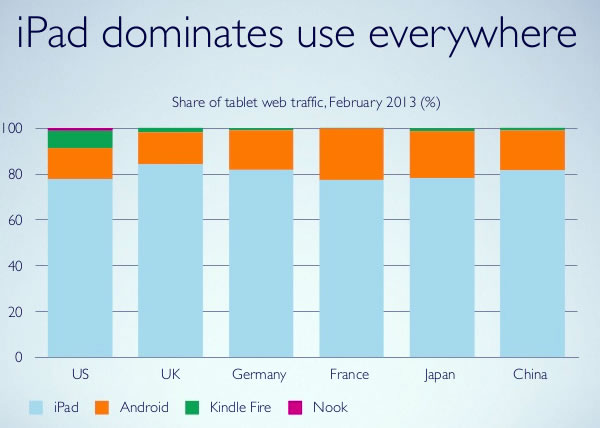
One casualty of the rise of tablets is the ereader. While they’re cheaper and typically have better battery life than tablets, the fact that they’re single-taskers, have a form factor that’s all-too-similar to tablets, and cost almost as much as the new smaller tablets (such as the iPad Mini) make them less appealing to purchase. They will most likely turn out to be a transitional technology, as netbooks and PDAs were:
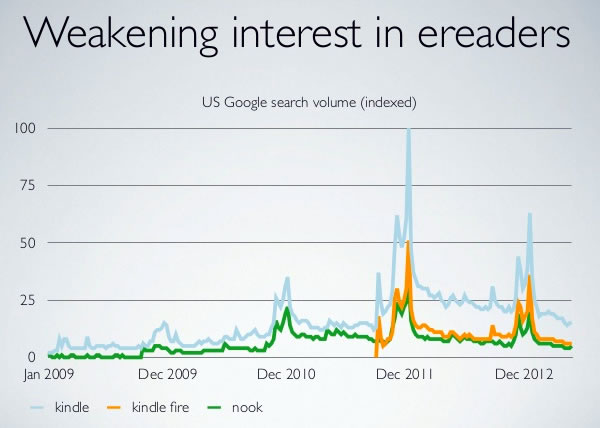
The Future is Mobile
Mobile is booming:
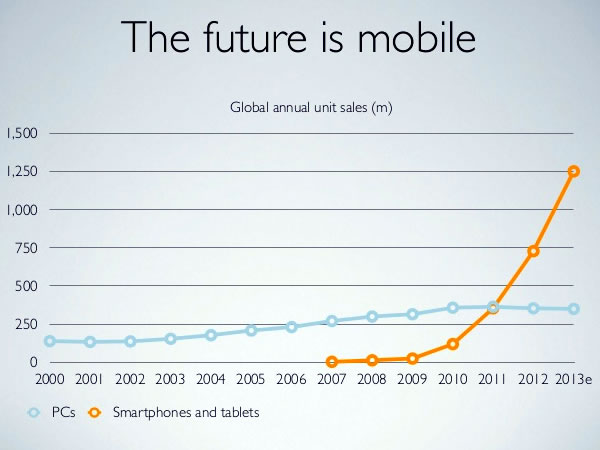
In fact, it’s expected that there will be more mobile phones than people by 2017:
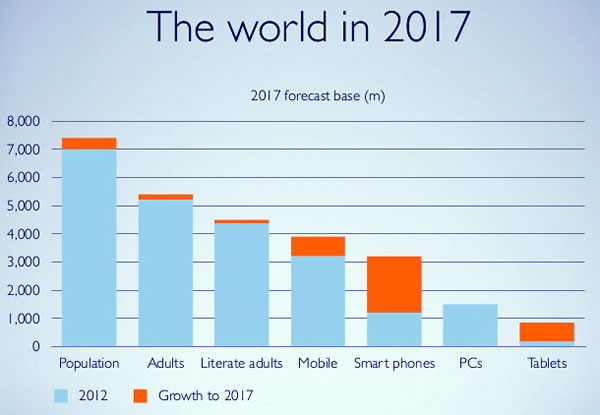
Two big players dominate, each with different audiences, own the mobile market. Samsung sells the most mobile units, but Apple has the most active users, with former heavyweights BlackBerry and Microsoft clawing tooth and nail for a distant third place:
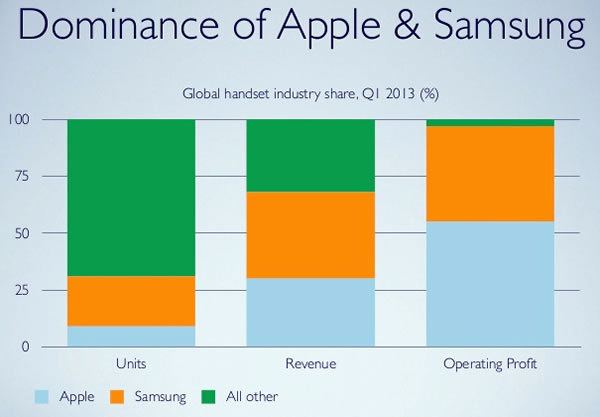
Ouch:
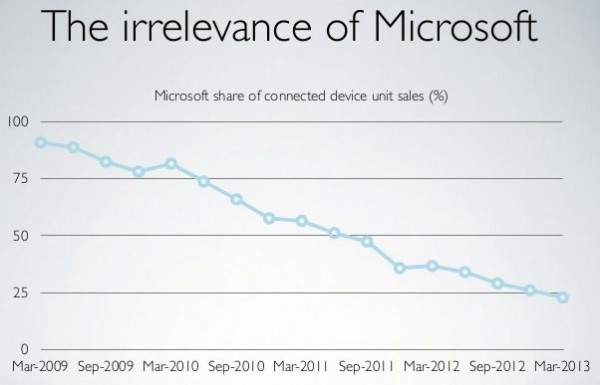
When Two Giants Combine
Back in 1994, when I was about to graduate with my computer science degree, I was at first intrigued by an ad place in some programming newsgroups about a company that was planning to sell stuff through an online catalog and deliver their products via courier or standard shipping. In the end, I dismissed it thinking “Really? That’s just the old Sears & Roebuck mail order catalog in electronic form.” I’m kicking myself now:
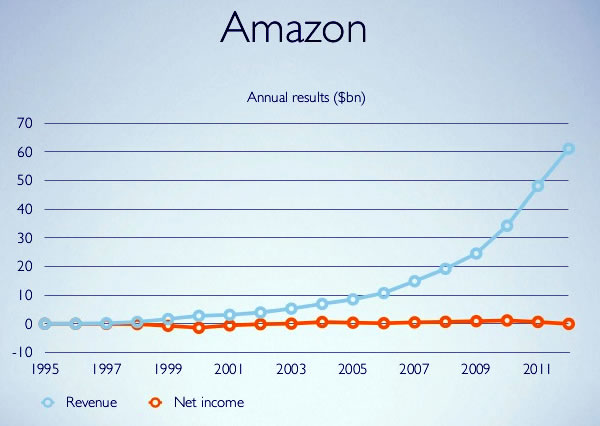
Like me, Evans compared Amazon to Sears & Roebuck — just not dismissively:
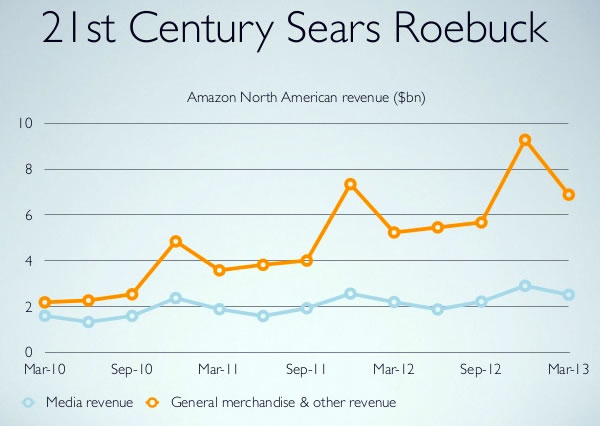
And having seen Amazon’s sales and having worked at Shopify, I’ve witnessed the upward trend in this chart from the front lines:
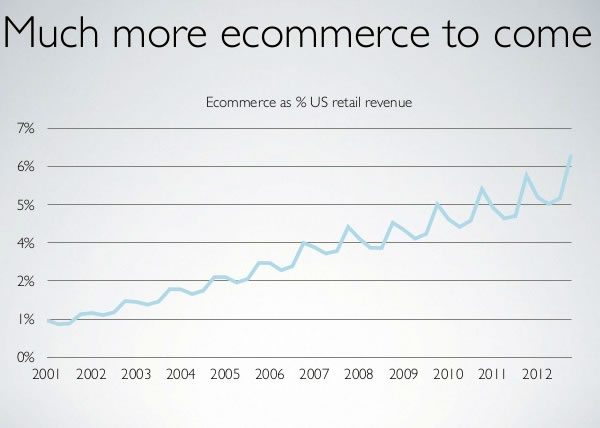
Be sure to check out the full slide deck of Mobile is Eating the World. It’s a mere 24 slides, but it’s great fodder for those of you who need material on the state of the industry:

2 replies on “Mobile is Eating the World!”
[…] This article also appears in Global Nerdy. […]
I sense a flood of used laptops for sale at much lower prices.